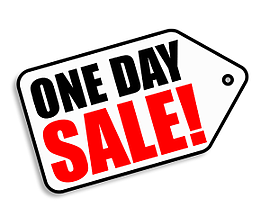Companies Rethinking Their Digital Marketing Strategies After COVID-19
Sometimes it takes a tragedy to make you rethink everything. For many businesses, COVID-19 was a wake-up call after years of avoiding implementing a...

Does Inbound Marketing for eCommerce actually work?
In a crowded online retail marketplace, it is a worthwhile question to ask. Busy online retailers need to look at every marketing methodology to determine how to get those coveted clicks to their site and increase conversion rates once customers arrive.
For some eCommerce sites, inbound can work beautifully. Traditional inbound marketing can increase your clicks and conversion rates. For other sites the answer may not be such a strong yes.
Let’s breakdown inbound for eCommerce to help you decide if it is right for your store.
With a traditional inbound strategy, companies begin with a website that is optimized for conversions and SEO. At the same time, they employ a content management strategy designed to attract targeted visitors to their sites, typically with blog articles, videos or other types of informative and valuable content.
Once on the site, visitors are incentivized to provide contact information through the use of offers in the form of eBooks, whitepapers or case studies. Upon collecting contact information, companies can continue to nurture leads through their buyer’s journey with additional offers that convinces them to move closer to a buying decision, eventually leading to a sale. The process is broken down into 4 phases as illustrated below.
At its essence good inbound marketing combines three elements: demand generation, lead capture and lead nurturing.
Demand generation is powered by content creation including blogs, video, whitepapers, eBooks and podcasts. Lead capture occurs with the use of offers, calls-to-action buttons and landing pages that contain a unique value proposition with no financial cost to the consumer and provides significant value. Lead nurturing guides prospects through their buying decision process over time.
This approach works particularly well for B2B companies where there is a lot of education required to make a sale. Deals tend to be different from one customer the next. The negotiation process typically occurs offline before a deal is finalized.
For inbound to work with your eCommerce store, your product or line must require education prior to purchase. One of the best examples that I can find is Williams Sonoma. They do an excellent job of providing information for every step of their buyers’ journey. From recipes, to online lessons from professional chefs to guides for each holiday, they provide a beautiful example of how to blend content marketing, lead generation (opt ins to their email list, catalogs, etc.) to online purchase.
For eCommerce stores that require education before purchase, a good inbound strategy can work wonders for driving sales.
Here is a list of a few different products that can benefit from traditional inbound.
While this list is not comprehensive, it gives you a good idea of products that can utilize traditional inbound concepts to nurture leads and drive sales.
For product-driven companies, a short sales cycle may limit the effectiveness of the inbound process. Customers are coming into a website to Buy. Period.
 Traditional inbound does not appear to seamlessly fit with this type of site. While companies definitely can hit on the first element of inbound by developing offers that are concentrated on images, video demonstration, customer reviews and product description. Blogs and gated content will definitely take a back seat to product focused content that is meant to induce a sale NOW.
Traditional inbound does not appear to seamlessly fit with this type of site. While companies definitely can hit on the first element of inbound by developing offers that are concentrated on images, video demonstration, customer reviews and product description. Blogs and gated content will definitely take a back seat to product focused content that is meant to induce a sale NOW.
Lead nurturing is focused on the end of the sales cycle or re-marketing (getting existing customer to buy more) and offers are used primarily to facilitate a buying decision such as coupons, wish lists and bulk purchase discounts.
There is little or no attempt to nurture a lead prior to the first purchase. This process works well for commodities, well known technology (e.g. Apple iPhones) and other short cycle product purchases.
For companies on this part of the eCommerce spectrum, pay-per-click (PPC) campaigns, offers through social media channels and other quick hit tactics may provide a better return on investment.
Part of the challenge in applying the inbound marketing methodology to all eCommerce sites boils down to the variability of the sales cycle and differentiation of products or services. Not every store can apply the Williams Sonoma approach.
Simply put, there is great variability in the product sales process among eCommerce retailers, from products requiring heavy education (see list above) to products that are commoditized where factors such as price, product availability and shipping costs are the primary influencers in the buying decision. Many customers arrive on eCommerce websites ready to purchase, which makes lead nurturing non-essential.
Since not all eCommerce sites have similar sales cycles, the traditional inbound marketing description above may not appear to strategically align with all eCommerce companies.
I wish that I could tell you that inbound marketing works perfectly in every online scenario. The truth of the matter is that for some businesses it fits perfectly and for others it is not quite a match.
For eCommerce stores there is no one size fits all strategy to drive results.
However, if you have a business where your ideal prospects need to be educated on why your brand or the products that you sell can help them solve a problem or fulfill a wish or desire, inbound marketing may be just the ticket to drive results the results you are looking for.

Sometimes it takes a tragedy to make you rethink everything. For many businesses, COVID-19 was a wake-up call after years of avoiding implementing a...

Consumers and business purchasing agents have never been more empowered than they are today. The ability to resist marketing messages from companies...

Growth is a natural goal for any business, but not all roads lead to winning strategies for accomplishing this.